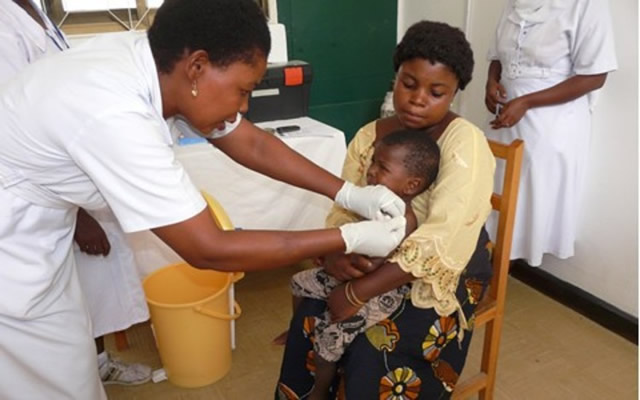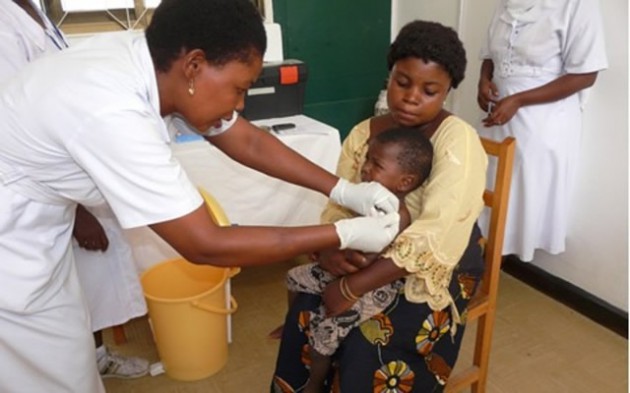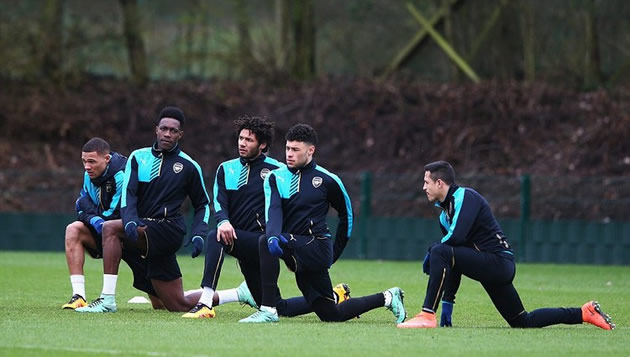Vaccines: African leaders must stand together

Ayo Ajayi
A CHILD who dies before the age of five is robbed of a life – and also of the chance to participate and contribute to their community and country.
For African leaders, determining how to best ensure that children survive and live productive lives isn’t easy.
Should countries invest in healthcare, infrastructure, education – or something else entirely? There is a low-cost, proven investment that not only gives children a healthy start at life, but is cost-effective with long-term benefits for prosperity: vaccines.
A new study from Sachiko Ozawa at the Johns Hopkins Bloomberg School of Public Health estimates that between 2011-2020, the majority of countries in Africa will collectively see a net economic benefit of $224 billion by investing in immunisation programmes.
The study also found that for 94 low and middle-income countries around the world, every dollar spent on immunisation programmes could return up to 16 times that amount in economic benefits, taking into account treatment costs and productivity losses.
In Ethiopia later this month, ministers of health and finance, as well as other national, traditional and religious leaders, will gather to discuss the unbeatable value of immunisation at the first-ever Ministerial Conference on Immunisation in Africa. This moment presents the perfect opportunity to acknowledge the benefits of vaccine programmes, celebrate the successes on the continent, look seriously at what needs to be done to make sure all children get the vaccines they need, and then commit to making that happen.
There’s a history of continental commitment to vaccines.
Four years ago, all African nations made a promise to support children’s health by joining other World Health Organisation member countries in setting a goal of universal access to immunisations by 2020 and committing to the Global Vaccine Action Plan.
There is much to celebrate in the progress made both before and since. Child deaths in Africa dropped a staggering 55 percent between 1990 and 2012, largely thanks to vaccines.
Since 2000, there has been an 86 percent reduction in deaths from measles on the continent. In 1996, 250 000 people across Africa were infected with meningitis A; today, the disease is almost eliminated in the region. And finally, last August, we reached a huge milestone when it was announced that Africa had gone a full year without a single reported case of wild polio.
National governments have been central to these successes, while tapping into the resources and skills of partners like Gavi, the Vaccine Alliance, donors and the private sector.
Unfortunately, at our current rate of progress, we are not on track to meet the ultimate goal of reaching all children with vaccines. Right now, one in five African children still do not receive the vaccinations they need.
Of the 10 countries around the world with the most unvaccinated children, five are African: the Democratic Republic of the Congo, Ethiopia, Nigeria, South Africa and Uganda. Furthermore, we continue to miss reduction targets for cases of tetanus, measles and rubella – vaccine-preventable diseases that were once thought to be on the verge of elimination.
Even the extraordinary success of the meningitis A vaccine could prove short-lived, unless countries commit to making this vaccine a regular part of their immunisation programmes.
So while Africa deserves credit for exceptional gains, we cannot allow the momentum to falter.
Not only will we save lives by committing to vaccines, but we will be doing so using proven and cost-effective tools. And this is where the economic argument for vaccines becomes even more compelling.
Investment in clinics, health workers, and healthcare delivery systems creates jobs and puts in place a basic infrastructure that can help save even more lives through the daily delivery of healthcare, and builds longer-term resilience to deal with crises. Strong primary healthcare systems are critical to our long-term development.
It’s better to prevent a disease than to treat it, both from a moral and an economic standpoint. Treating vaccine-preventable diseases places an enormous strain on public health systems by redirecting scarce and valuable resources, and slowing economic progress.
This is a widely supported perspective, which is why the United Nations included vaccines for all – as well as universal health coverage – as key to achieving the Sustainable Development Goals.
Progress, we know, is not inevitable. Gains can be reversed. So now is the time for Africa’s leaders to stand together and recommit to providing universal access to vaccines. In doing so, they’ll commit to more than the health of children. They’ll commit to the health of Africa.
The author is director of the Bill & Melinda Gates Foundation’s Africa team. This Article first appeared in the Mail & Guardian.








Comments